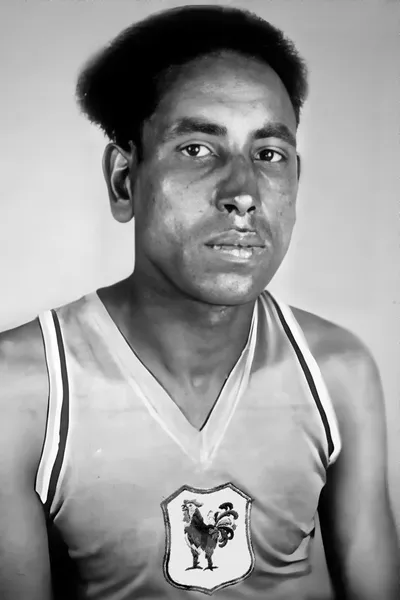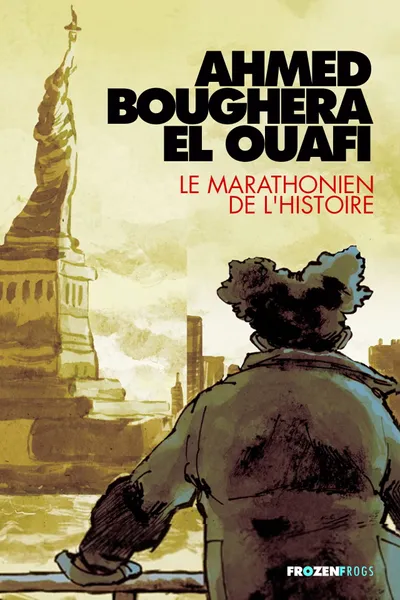
Ahmed El Ouafi Boughéra
Ahmed El Ouafi Boughéra (Arabic: أحمد بوقرة الوافي) is a French athlete and worker born October 15, 1898 in Ouled Djellal in Algeria and died October 18, 1959 in Saint-Denis in France. In 1928, he became the first indigenous African athlete to win an Olympic medal and even more so to be an Olympic champion by winning the marathon at the Summer Games in Amsterdam. His career made him a “symbol of the athlete forgotten by history” .
Ahmed Boughera El Ouafi joins the French army and crosses the Mediterranean to participate in the Great War. In 1923, a lieutenant, having noticed his athletic talents, offered him the opportunity to take part in his first long-distance race, during which he distinguished himself. Very quickly, he progressed through the events, becoming French marathon champion in 1924, before participating in the Paris Olympic Games the same year and finishing seventh in the main event in 2 hours and 54 minutes. As the International Colonial Exhibition looms in Paris, the apogee of French domination over its overseas possessions, a hitherto unknown "Algerian native" by the name of Ahmed Boughera El Ouafi imposes himself against all expectations during the prestigious marathon event, August 5, 1928 in Amsterdam. On the starting line, no one bet on the one wearing bib 71 with the blue, white and red rooster. Moreover, at the tenth kilometer he is only in twentieth place. However, at kilometer 32, he comes back and is in ambush in third place. Then, five kilometers from the finish, he overtook the American Joie Ray and the Japanese Kanematsu Yamada. Through determination, Ahmed Boughera El Ouafi won, to everyone's surprise, the gold medal in 2 hours and 32 minutes. During a competition, France is honored to be able to count on this reservoir of athletes from the colonies, especially since the expected French champions like Jules Ladoumègue are not there after accusations of professionalism.
Victim of the Olympic requirement to remain an amateur, unable to make a living from his sport, Ahmed Boughera El Ouafi then signed up as a laborer at Renault where he worked alongside hundreds of “native” workers. Registered with the Billancourt Olympic Club, he continued with determination to run 15 kilometers a day and to take part brilliantly in several races, despite his exhausting days at the factory. He was again crowned French marathon champion in 1927, at the same time earning his selection for the Olympic Games in 1928 in Amsterdam, where he won the gold medal in the same discipline. Ahmed Boughera El Ouafi's notoriety did not extend beyond the Olympics: participating in professional competitions and attractions in the United States (he notably ran against animals), he was removed from the French Athletics Federation and was never again authorized to compete in an official competition. Withdrawal, relegation, misery: the figure of the champion disappears. We only found her furtively in 1956 when another marathon winner, Alain Mimoun, returning from the Melbourne Olympic Games, paid her a beautiful fraternal tribute. But it is very late, the “little Arab” is only a shadow of himself.
He died by gunshot in Saint-Denis (France), in poorly understood conditions, during the Algerian war.
Known for
Acting
Place of birth
Ouled Djellal, Algérie
Birthday
10/15/1898


